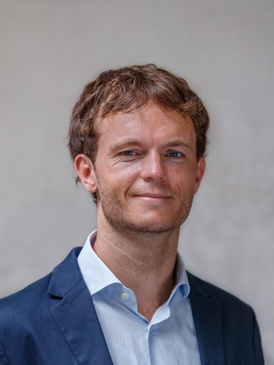Martin Hänsel promovierte in Volkswirtschaftslehre an der Christian-Albrechts-Universität zu Kiel und ist seit 2019 Postdoktorand im FutureLab Public Economics and Climate Finance im Fachbereich Transformationspfade des Potsdam-Instituts für Klimafolgenforschung. Er erforscht die Transformation von Wirtschaftssystemen zur Nachhaltigkeit, wobei seine Forschung neben ihrer disziplinären Fundierung häufig auch interdisziplinär ausgerichtet ist. Zentrale Schwerpunkte bilden die Ökonomie des Klimawandels, Verteilungswirkungen von Umweltpolitiken, sowie die Ökonomie natürlicher Ressourcen. Seine Arbeiten sind in führenden Fachzeitschriften, wie dem American Economic Journal und Nature Climate Change publiziert.
Abteilung
FutureLab / Science Unit
Lebenslauf
Kontakt
14412 Potsdam
ORCID
Work in progress
Putin's War, Distributional Justice and Climate Policy Options: Lessons from an optimal taxation model for Germany (with Franks, M., Kalkuhl, M. and O. Edenhofer).
Climate change is a policy choice: Today’s carbon prices path determines long-term temperatures (with Drupp, M.A., Bauer, M., Rudebusch, G., and G. Wagner).
Climate economics support for the UN climate targets (with Drupp, M.A., Johansson, D.J.A., Nesje, F., Azar, C., Freeman, M.C., Groom, B.and T. Sterner). Nature Climate Change 10: 781–789, 2020.
Ocean warming and acidification may drag down the commercial Arctic cod fishery by 2100 (with Schmidt, J.O., Stiasny, M.H., Stoeven, M.T., Voss, R. and M.F. Quaas). PLOS ONE 15(4): e0231589, 2020.
Ecological-economic sustainability of the Baltic cod fisheries under ocean warming and acidification (with Voss, Rudi; Quaas, Martin F.; Stiasny, Martina H.; Stecher Justiniano Pinto, Guil-herme A.; Lehmann, Andreas et al.). Journal of Environmental Management 238: 110–118, 2019.
Intertemporal Distribution, Sufficiency, and the Social Cost of Carbon (with M.F. Quaas). Ecological Economics 146: 520–535, 2018.
2020 - Invitation to the 7th Lindau Nobel Laureate Meeting on Economic Sciences
Bog Post on "Sind effektive CO2-Preise politisch umsetzbar?"
PIK press release on "Climate economics support for the UN climate targets"
Tagesspiegel article "UN-Klimaschutzziel liegt nahe am Kosten-Nutzen-Optimum"
SRF radio interview "Neue Berechnung der Klimakosten: Nobelpreisträger in der Kritik"
MDR article and interview "Was darf und muss Klimaschutz kosten?"
Here is my Twitter account.






